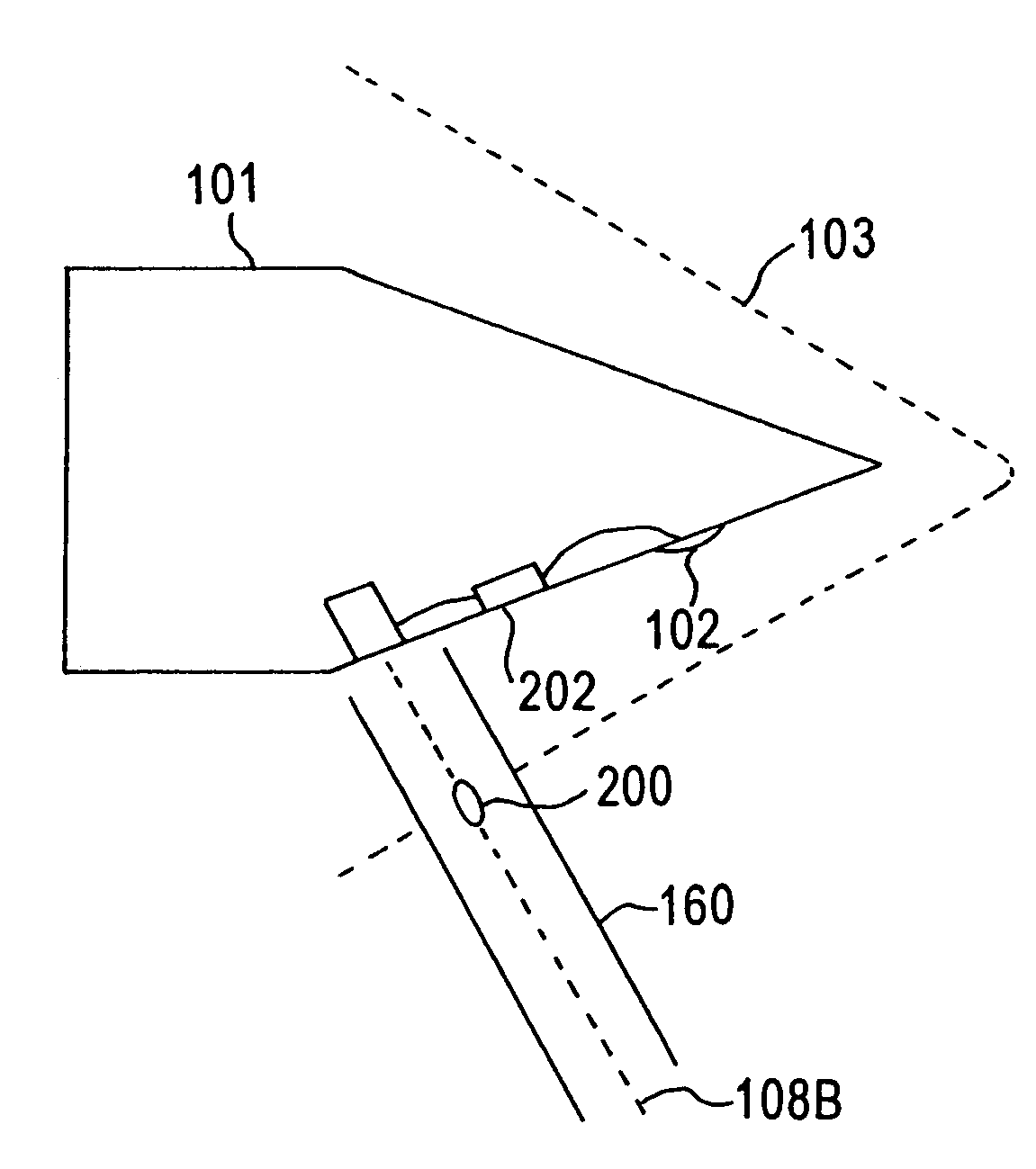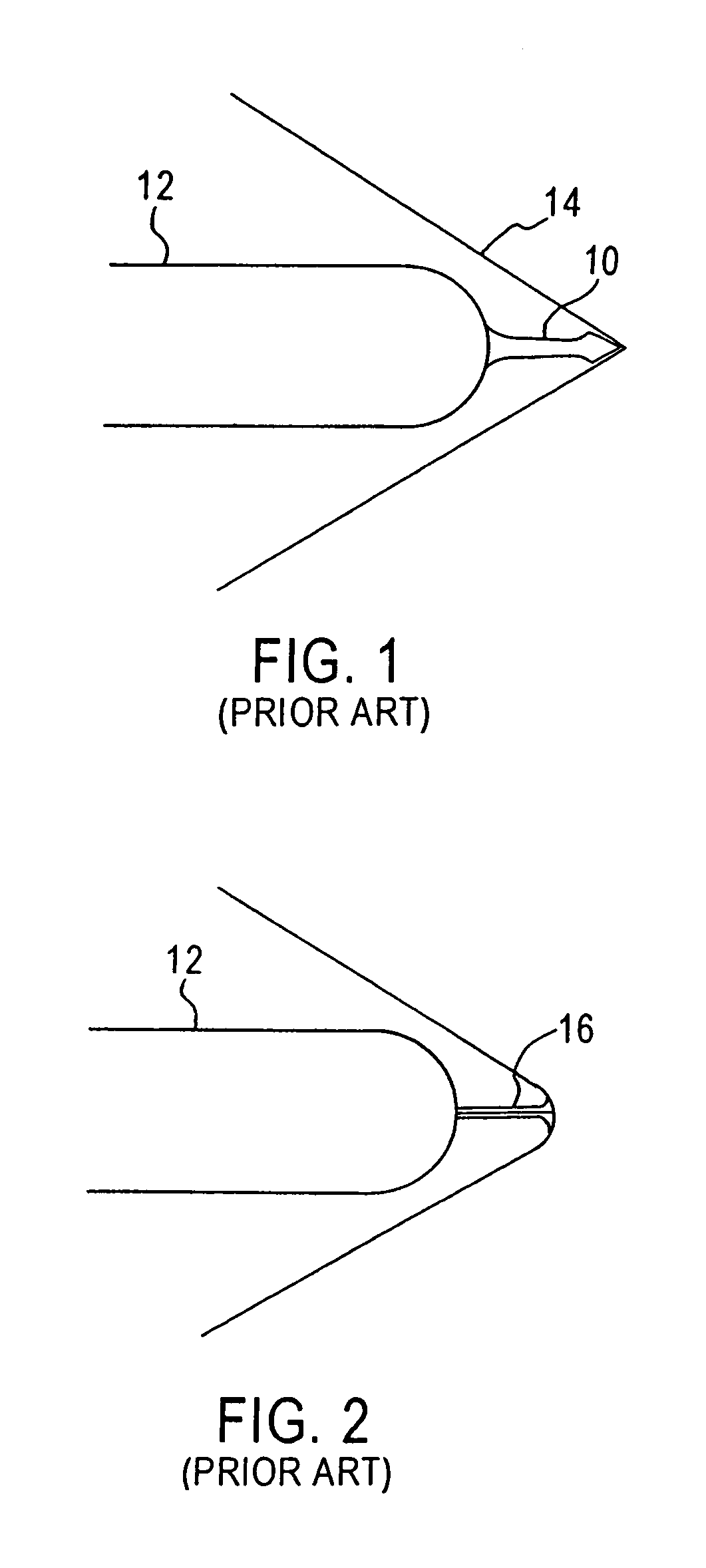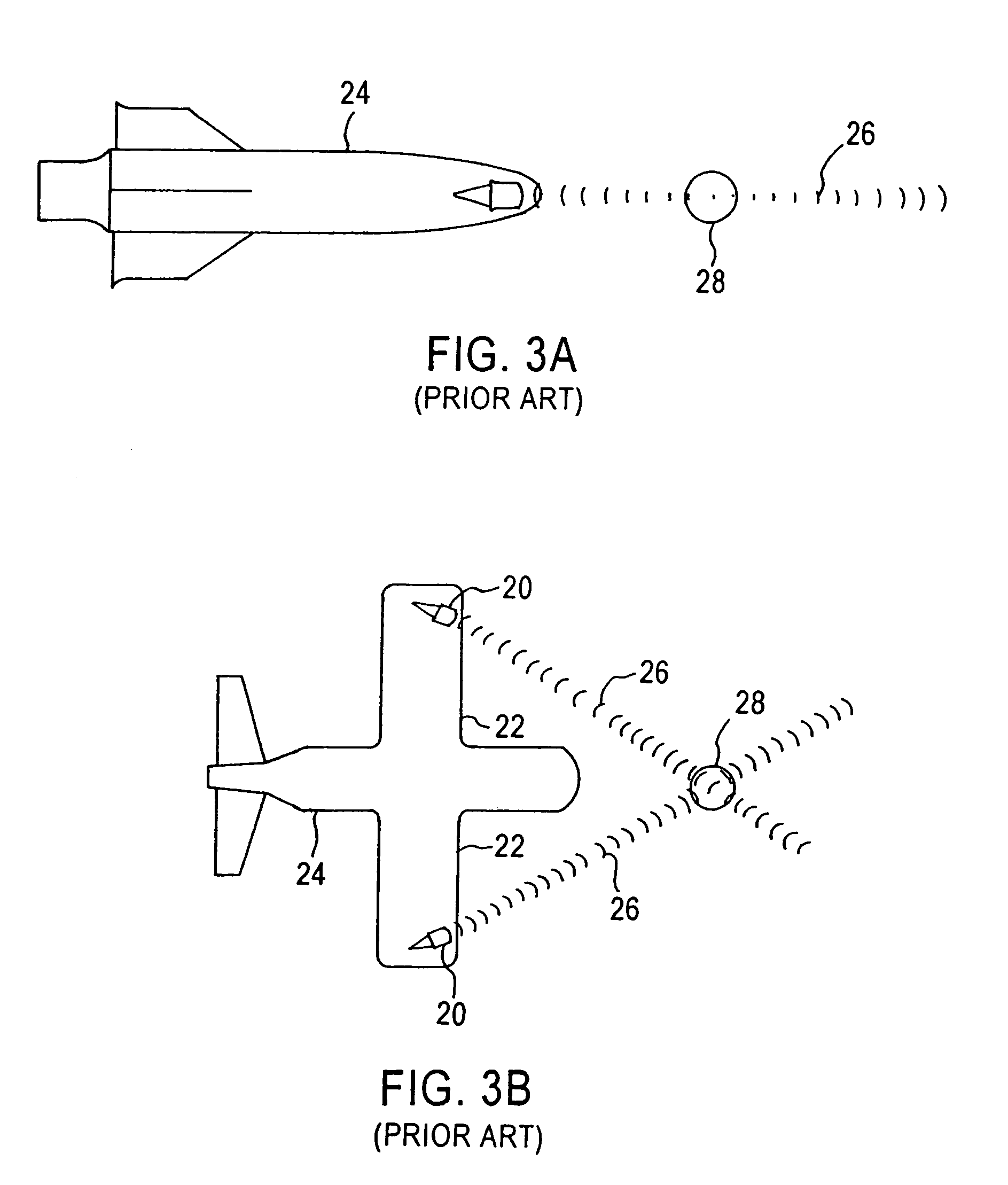Shock wave modification method and system
a technology of shock wave and fluid, applied in the field of facilitating movement, can solve the problems of undesirable augmentation of acoustic signature, reduce the efficiency of the desired momentum transfer from the vehicle to the effluent stream, and undesirable effects, so as to reduce the pressure behind the shock wave, reduce the density, and reduce the effect of pressur
- Summary
- Abstract
- Description
- Claims
- Application Information
AI Technical Summary
Benefits of technology
Problems solved by technology
Method used
Image
Examples
example 1
[0081]FIGS. 11A–D illustrate use of the invention with a body 101 moving to the right through a fluid 105 at supersonic speed. In FIG. 11A, the body 101 is moving to the right through the fluid 105 at supersonic speed, as indicated by a shock wave 103 ahead of the body 101. In the rest frame of the shock wave 103, or equivalently the rest frame of the body 101, the fluid 105 ahead of the shock wave is moving to the left.
[0082]The invention is not limited as to a particular body 101. For example, the body 101 could be an airplane, a missile, a launch vehicle, a projectile, a re-entry vehicle, or any subsystem or protrusion thereon, such as an engine, the body's nose, an external fuel tank, a fairing, a tail, a wing, or external instrumentation. Furthermore, the invention is not limited as to the particular fluid 105 through which the body 101 passes. Additionally, the fluid flow need only be locally supersonic to yield a shock wave 103. The body 101 also includes a port 102 through w...
example 2
[0086]FIG. 12 illustrates a use of the invention with a body 101 that is passing through a fluid 105 with a non-zero angle of attack A. The body 102 includes an energy discharge device 102 that creates a heated core along an extended path 108 through a shock wave 103 in front of the body 101. Although the extended path 108 is parallel to the motion of the body 101 through the fluid 105, the angle of the extended path 108 from energy discharge device 102 is not parallel to the body center axis (BCA) of the body 101 because of the non-zero angle of attack A of the body 101. In fact, the preferential drag reduction resulting from the off-center / asymmetric application of the heating can be used to partially or fully maintain the non-zero angle of attack A, in addition to reducing the overall drag on the body 101.
example 3
[0087]A method of increasing the energy deposition along a heated path through the use of electric discharge is illustrated in FIG. 13. A body 101 passing through a fluid 105 at supersonic speed such that a set of shock waves 103 is created adjacent to the body 101. The body includes three energy emitting mechanisms 106, 107. Two of the energy emitting mechanisms 106 are charged with a given polarity, and a third energy emitting mechanism 107 is oppositely charged. An example of an energy emitting mechanism is explained in more detail with regard to FIG. 14.
[0088]To better control the electric discharge path of the energy emitting mechanisms 106, 107, each of the energy emitting mechanisms includes an electromagnetic discharge port that is capable of ionizing a path 108 through the fluid 105. The conductive ionized paths 108 intersect at a point PI ahead of the body 101 and ahead of the shock wave 103. The ionized paths 108 provide a conductive circuit along which the oppositely cha...
PUM
 Login to View More
Login to View More Abstract
Description
Claims
Application Information
 Login to View More
Login to View More - R&D
- Intellectual Property
- Life Sciences
- Materials
- Tech Scout
- Unparalleled Data Quality
- Higher Quality Content
- 60% Fewer Hallucinations
Browse by: Latest US Patents, China's latest patents, Technical Efficacy Thesaurus, Application Domain, Technology Topic, Popular Technical Reports.
© 2025 PatSnap. All rights reserved.Legal|Privacy policy|Modern Slavery Act Transparency Statement|Sitemap|About US| Contact US: help@patsnap.com



